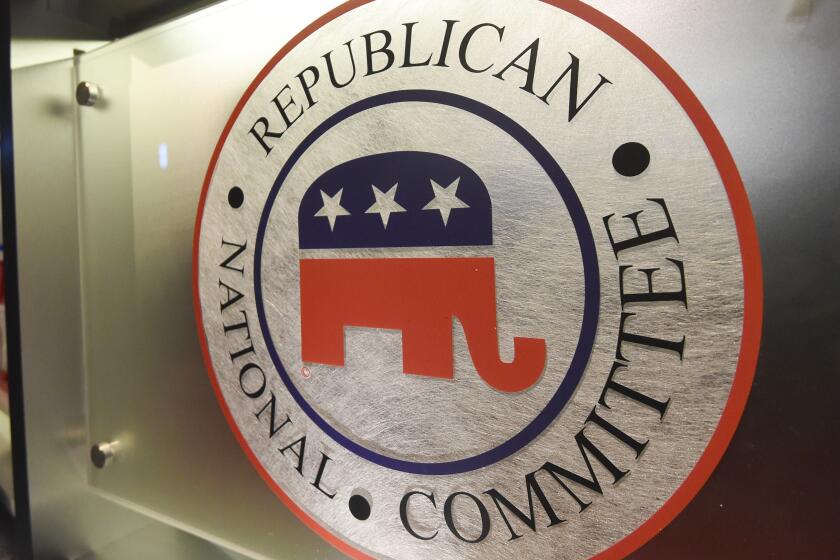ELECTIONS 22ND CONGRESSIONAL DISTRICT : Bayer Criticizes Rep. Moorhead Over Thrift Scandal
Democratic congressional candidate David Bayer criticized Rep. Carlos Moorhead (R-Glendale) Wednesday for participating in what Bayer said was a 1986 attempt by House Republicans to pressure federal regulators into loosening controls on risky investment practices by savings and loan institutions.
Standing outside Moorhead’s field office in Glendale, Bayer said Moorhead’s action was unethical and contended that the congressman bears partial responsibility for the S&L; scandal.
In a telephone interview, Moorhead dismissed Bayer’s accusations as “a blatant political maneuver two weeks before an election.”
Bayer, a former Burbank adult education director, is challenging Moorhead in the Nov. 6 election for the 22nd Congressional District seat, which Moorhead has held since 1972. The GOP-dominated district covers portions of Burbank, all of Glendale and parts of the Santa Clarita, Antelope and San Gabriel valleys.
At a press conference, Bayer handed out copies of an Aug. 14, 1986, letter co-signed by Moorhead and 15 other GOP representatives and sent to Edwin Gray, then chairman of the Federal Home Loan Bank Board.
The letter sought release of internal government documents related to board enforcement of a rule to limit S&Ls; from investing taxpayer-insured deposits in junk bonds, real estate developments and other risky, non-mortgage investments.
Gray said in an interview last week that he regarded the letter, written by Rep. Charles Pashayan (R-Fresno), as a poorly disguised attempt to pass confidential government information to the now-bankrupt Lincoln Savings and Loan.
At the time, Lincoln and about 150 other S&Ls; were seeking exemptions from the limits. In 1987, Lincoln filed a lawsuit challenging the bank board’s investment restrictions.
Lincoln’s owner, Charles Keating, is awaiting trial on securities fraud charges in connection with the sale of junk bonds through the institution, whose collapse could cost taxpayers more than $2 billion.
Bayer said Moorhead’s signing of the letter shows he doesn’t understand his “fiduciary responsibilities to his office and to the public.”
Bayer said the congressman committed an unethical act because he signed the letter as a favor to Pashayan, who received $26,000 from Keating. Pashayan, who is involved in a tight reelection battle, has since returned the money.
Bayer acknowledged that there is no evidence Moorhead took campaign contributions from Keating.
Moorhead said there is nothing unusual about one congressman helping another and that the letter did not ask for any information Congress was not entitled to.
Moorhead said that the letter “was relatively inconsequential to me at the time” and that he had no way of knowing Pashayan had taken money from Keating. Moorhead added that Gray did not complain about the request at the time.
More to Read
Get the L.A. Times Politics newsletter
Deeply reported insights into legislation, politics and policy from Sacramento, Washington and beyond. In your inbox three times per week.
You may occasionally receive promotional content from the Los Angeles Times.






